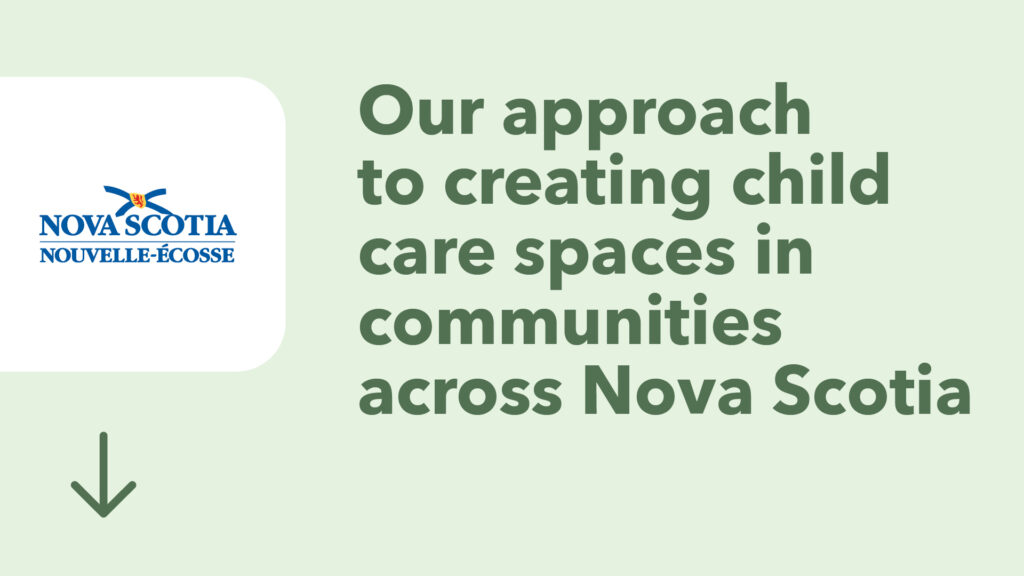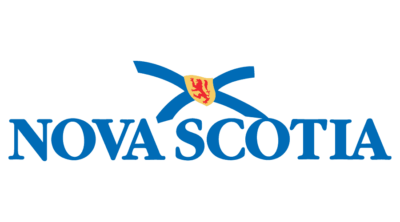The Challenge
In July 2021, the Government of Canada and the Province of Nova Scotia signed the Canada-Wide Early Learning and Child Care Agreement (CWELCCA). This historic agreement is set to transform the childcare sector from a market-based system to a one that is publicly funded and managed. One of the key goals of this transformation includes creating 9,500 licensed spaces by March 2026 and achieving an average cost of $10/day for all provincially funded and regulated childcare spaces.
As Nova Scotia’s population continues to grow, the demand for childcare spaces continues to rise. The Department of Education and Early Childhood Development (EECD) recognized the need to consider innovative ways to meet this demand. To tackle the system gap, Davis Pier working collaboratively with EECD to support the development of a public facing expansion strategy, to inform the design and rollout of a range of infrastructure programs. Davis Pier also supported EECD in actioning key components of the strategy through the development of a business case to secure funding for childcare spaces and innovative delivery models in healthcare settings.
Project Goals
9,500
licensed spaces by March 2026
$10/day
for childcare for all provincially-funded spaces
The Approach
Davis Pier worked alongside EECD understand strategic priorities to plan for the expansion of childcare by developing a deep understanding of current programs, subsidies, service provision, infrastructure, and overall access by region. These findings informed an approach that was grounded in three key streams:
- Maximizing existing operational space
- Leveraging strategic partnerships and infrastructure
- Tailoring solutions to meet unique community needs
As usual, we took it a step further than strategy development and collaborated closely with EECD on the implementation of several of the plan’s actions. This work included the design of a major infrastructure program, where research and ideation were conducted to develop a comparable provincial infrastructure program. We also supported the implementation of a minor infrastructure program that provided additional funding pathways for minor renovation projects and new builds that would create more childcare spaces for people who need them.
Finally, Davis Pier supported the development of a business case to establish public partnerships with the healthcare sector and secure funding to utilize existing infrastructure for new, innovative childcare.

The Outcome
Our contributions to support the demand and creation of childcare spaces was rooted in identifying new pathways for infrastructure development. The expansion strategy is a public-facing document that articulates EECD’s multi-pronged approach to creating childcare spaces in communities across Nova Scotia.
EECD’s minor infrastructure program application is now live, enabling existing or new licensed not-for-profit child-care providers to receive up to $250,000 for minor renovations that will increase childcare spaces.
The major infrastructure program has been designed in partnership with the team at EECD and aims to support the development of new licensed childcare spaces by providing funding to eligible expansion projects.
And the business case for the creation of childcare spaces in health care settings has been approved for EECD to develop new childcare centres at a number of healthcare sites across the province.
The Impact
The expansion strategy for early learning and childcare outlines a plan to leverage existing infrastructure and forge new public partnerships to provide childcare for people who need it. The three-stream approach that EECD and Davis Pier developed offers a balanced, flexible, and sustainable solution to the current need for childcare in Nova Scotia.
This work and its impact demonstrates the value that collaboration across government, service providers, and community can lead to innovative solutions. And the approach and learnings extend beyond childcare and can be applied to infrastructure challenges in other sectors including housing, long-term care, and disability support programming.

